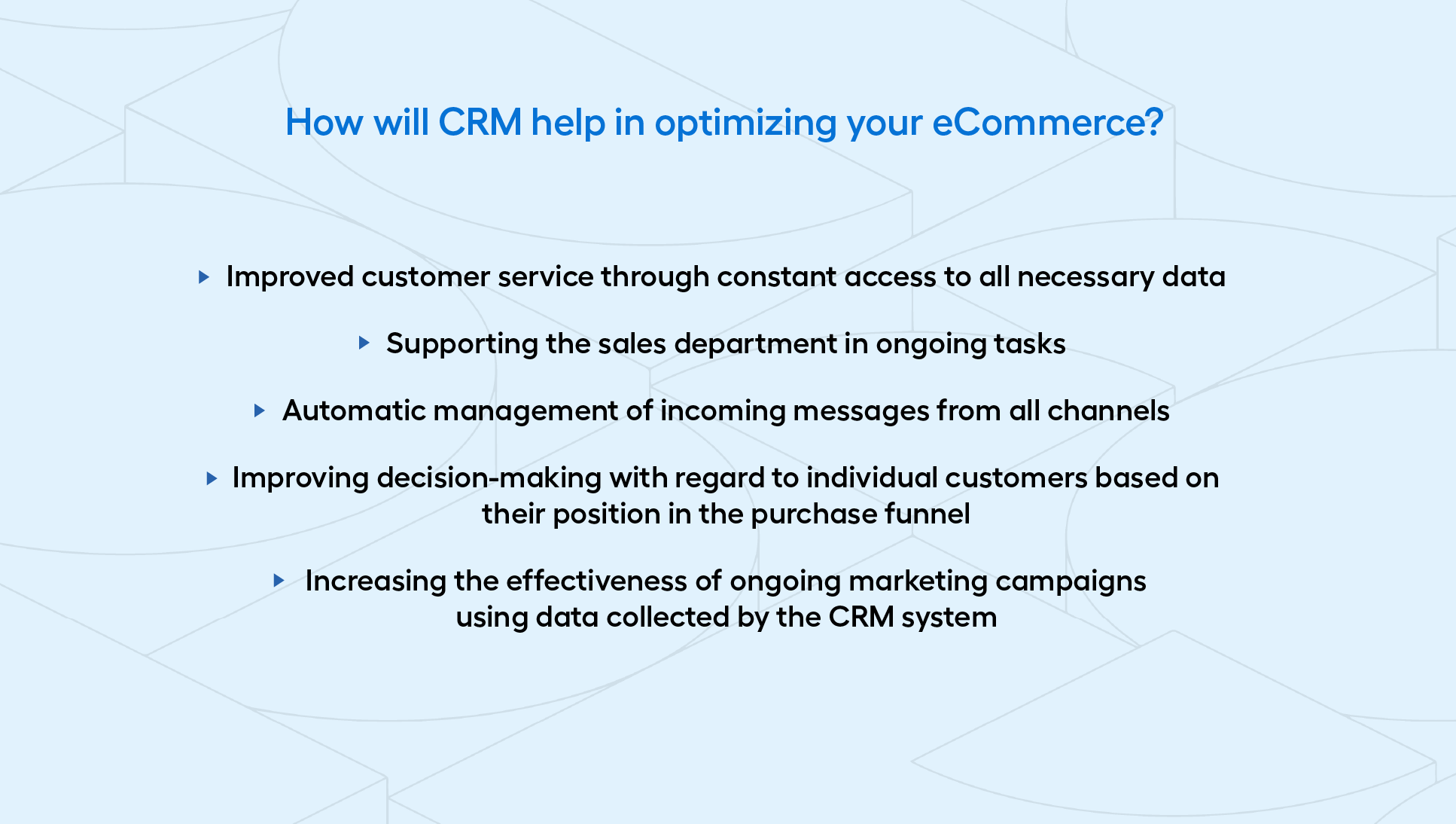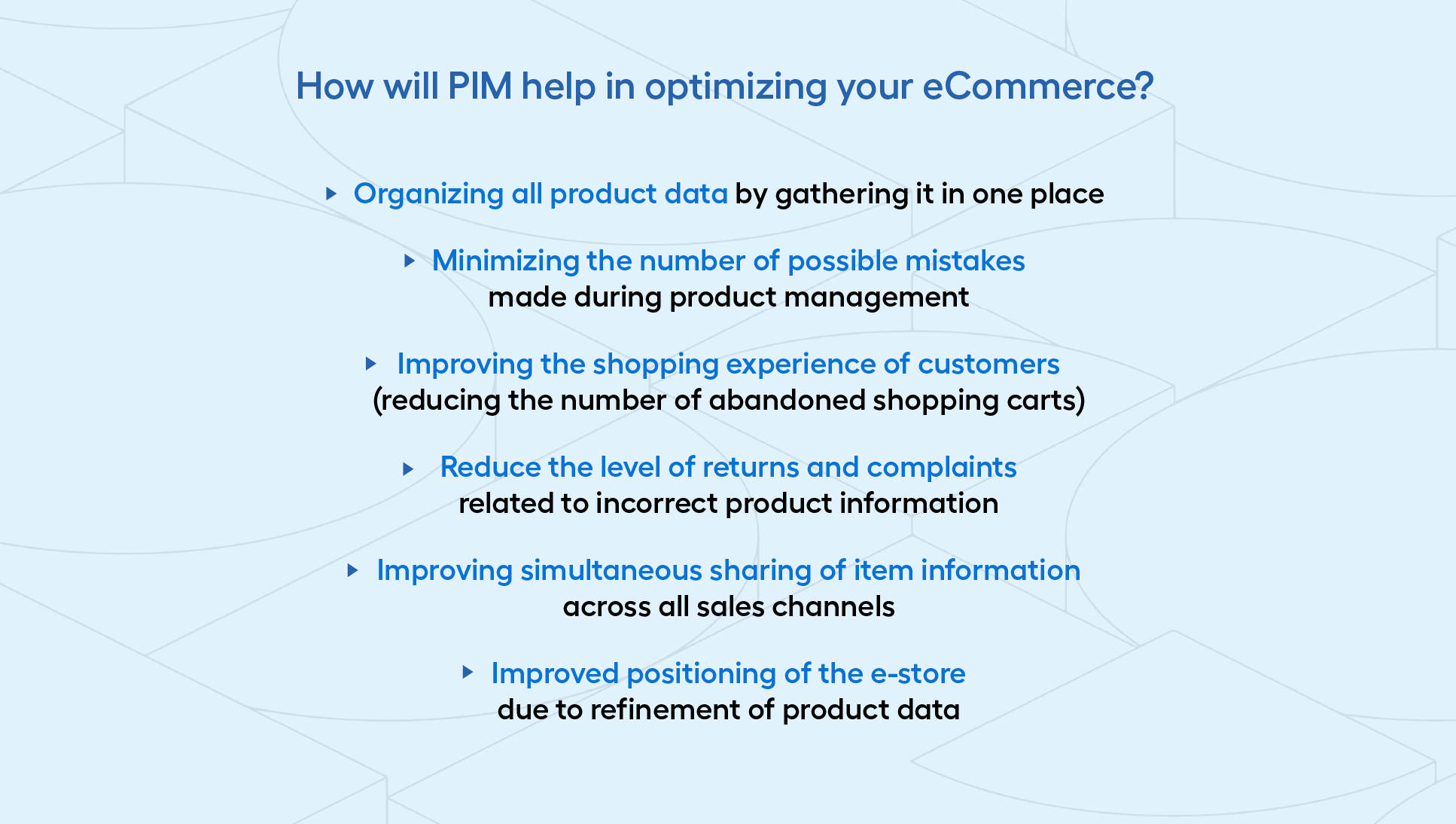The next part of our series on eCommerce cost optimization is ready! We invite you to read all the articles prepared as elements of this series, which aims to give eCommerce store owners tips for operating in times of economic recession:
- Optimizing eCommerce costs - automation part I - - this article focused on the effects that implementing marketing automation can have on the daily operations of the store, as well as performing integration with WMS and ERP.
- Optimizing eCommerce Costs - Automation Part II - as part of the second piece, we took a detailed look at solutions such as CRM and PIM.
- Optimizing eCommerce costs - the technical side - the last part of the series will cover technical optimization of an online store on Magento, outsourcing selected tasks, and monitoring eCommerce (to ensure that you can react quickly to problems as they arise).
Automation of selected processes of an online store is one of the methods by which eCommerce owners can try to optimize costs incurred so far. The solutions available (and, what's more, integrated, designed or implemented by us) become particularly relevant in times of ever-increasing costs of doing business - due to, among other things, double-digit inflation, the ongoing war in Ukraine or limited availability of raw materials. The systems in question provide an opportunity to reduce the resources used and costs incurred to date for a certain pool of repetitive tasks, in order to redeploy them to other areas of the business (which can provide potentially better results for the company as a whole).
Thanks to reading the previous article, you already know how eCommerce employees are supported by ERP, WMS and marketing automation - with today's release you are going to discover more about CRM and PIM. Will you find out how they can help your business activities?
CRM - supporting not only the sales department
It would seem that Customer Relationship System (a system for managing relationships with both current and potential customers) is only used by sales departments to facilitate their daily customer acquisition processes. Although there is no doubt that it is this department that uses it the most, a tailored CRM system (due to its numerous functionalities) can support a company not only in effective sales management. It will also prove itself as a solution used for internal communication, analytical activities or servicing an already acquired customer.
Similarly to other automation solutions, CRM streamlines processes, increases control over actions taken and avoids misunderstandings, as well as relieves individual employees of various departments from performing some of the tasks. How?
CRM functions - daily support for your business
The basic functions of CRM concern the sales department mentioned at the very beginning - how does the system support this group of employees (especially in the B2B industry)? First of all, it should be mentioned that it allows you to collect all customer data (from contact information, through the history of communication with the clients, up to the presented offer and any subsequent arrangements, such as individual discounts or cooperation rules) in one place, without using your own notes or numerous files saved on Google Drive. In this way, it is guaranteed that no information escapes, introducing chaos and causing customer dissatisfaction. Such information is also important later from the point of view of customer service staff (especially when advisors change frequently) and marketing (a view of the customer's history allows better planning of ongoing advertising campaigns).
The work of the sales department (acquiring leads, sending offers, conducting communication with potential customers) is also improved by messages prepared in advance, which can be personalized and sent to the recipient in a short time (thanks to integration with various email inboxes). What's more, the automation of notifications and reminders effectively supports the processes of offering and customer acquisition. The messages help to take the best care of the customer at each stage of their journey (based on where they are in the sales funnel at the moment and the amount of time passing between each form of contact). So can you see how CRM speeds up the workflow, saving the limited resources of sales staff?
But that's not all, because, as we mentioned, CRM tasks are not limited to designing sales processes. The system also allows you to:
- serve the customer at the highest level thanks to constant access to all necessary information for each eligible person (which protects against unnecessary mistakes and costs, building a positive image of the company in the eyes of the audience),
- quickly take further actions towards the customer, according to the place in the sales funnel (thanks to tagging based on customer information),
- automatically manage messages coming from all channels (chat, email, social media, contact form) thanks to aggregation in a single system (which makes it easier to collect and speed up responses),
- distribute customers among account handler without having to "get along" on their own, which promotes time savings.
Because of these functions, the use of CRM will positively affect your eCommerce performance - primarily by streamlining and speeding up the processes taking place (especially sales processes) and relieving your employees from performing certain tasks manually (e.g. by automating the dispatch of follow-ups as part of CRM integration with the relevant program), which will allow you to reallocate available resources to more important tasks. However, this will only become possible if you make sure that the functions of the system you choose perfectly address the needs and pains of just your business. As a next step, it is worth choosing to work with an experienced entity - such as us - that will ensure proper integration with your sales platform and other systems.

PIM - the right product information in every channel
Whether your online store has a larger or smaller range of products, manually entering all the information for each item on offer (from description, to types, photos, prices, labels, to technical documentation, customer reviews or translations) consumes a great deal of resources. What's more, when all tasks are performed manually by individual employees, the probability that someone will make a mistake increases significantly - especially when using numerous sales channels. What are the consequences of this? First of all, dissatisfaction of the customer who received incorrect information, and thus - loss of possible profit and benefits that could be gained in the future.
Tailored to the needs of a specific business, the Product Information Management system is the answer to such problems, guaranteeing an efficient flow of information, which translates into building a positive user experience for the online store. Among its key features, we'll mention the collection of data in a single system, quick and easy updating, as well as sending consistent information (thanks to seamless integration) to every sales channel - online store, social media, mobile app or print materials. What's more, it allows you to grant access to the database to any person who should be authorized to do so, further streamlining tasks.
Optimization through automation - for lower eCommerce costs
What do you gain when you decide to integrate your online store with a product information management system? First of all, you will have the assurance that you are storing all the necessary information in one place, which will allow you to reduce the risk of data chaos and thus minimize the number of mistakes that translate into additional costs (optimizing costs). At the same time, using PIM will provide you with such additional benefits as:
- better positioning of the online store (thanks to finely refined product data),
- improved user shopping experience and reduced risk of shopping cart abandonment,
- reduced time-to-market (ability to make product information available simultaneously in each channel) leading to the ability to stay ahead of the competition,
- reduced costs from complaints and returns resulting from incorrect product information.
It is also important that a customized PIM will relieve the team that has been manually completing information up to now, and will allow to transfer the acquired resources to tasks related to another area of the company's operation. In this way you will partially optimize the costs of your eCommerce.

Optymalizacja przez automatyzację – dla mniejszych kosztów eCommerce
You already know the benefits of deciding to automatize some of your eCommerce processes - from streamlining the processes involved, to relieving some of the burden on your employees, to optimizing costs and being able to focus on forward-looking areas of your business. When deciding which system will be best for you (among WMS, PIM, ERP, CRM and marketing automation software), take into account the needs of your business and consider which areas are currently devouring (unnecessarily) the most resources. That's how you'll take the first step to optimizing your eCommerce costs.



